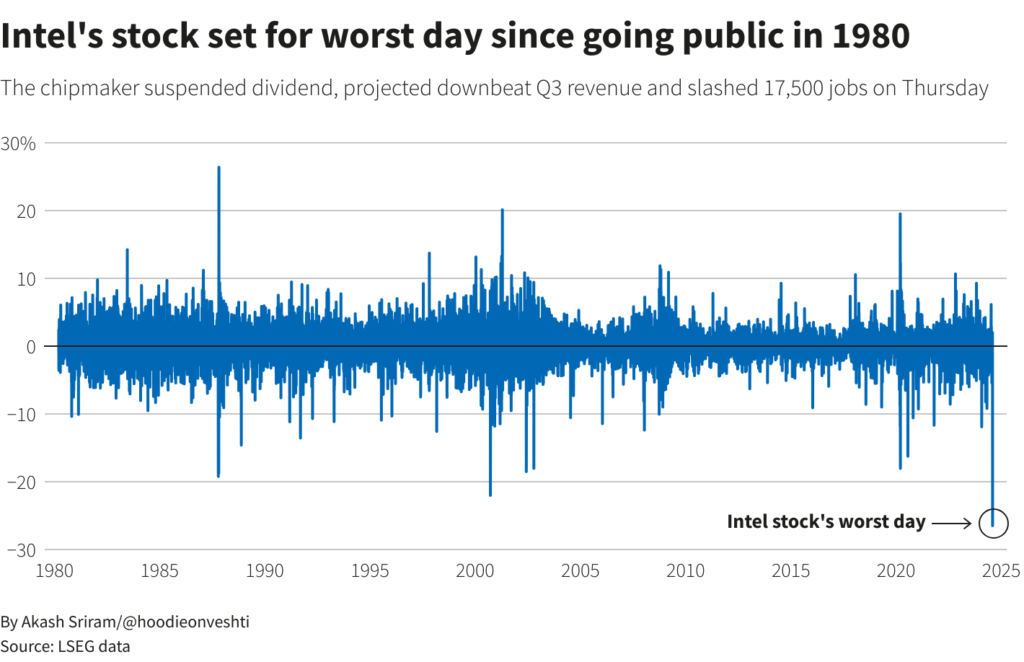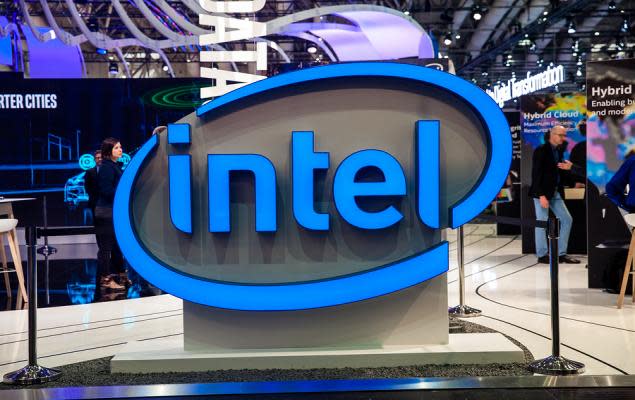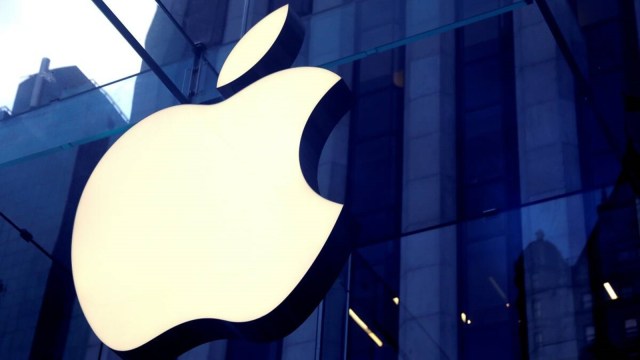Aug 2 (Reuters) – Intel (INTC.O), opens new tab shares sank nearly 28% on Friday and were set for their worst day ever after the company suspended dividend and slashed workforce to fund a costly turnaround for its chip-making business.
The company was set to lose about $35 billion in market value as its disappointing forecast and planned 15% job cuts raised worries about its ability to catch up with Taiwan’s TSMC (2330.TW), opens new tab and other chipmakers.
“Intel’s issues are now approaching the existential in our view,” Bernstein analyst Stacy Rasgon said.
He said there would be “going concern” talks in other circumstances, but Intel could add $40 billion in cash to its balance sheet by the end of 2025 through the moves, as well as subsidies and partner contributions.
“Intel will survive (in some form) to continue the fight,” Rasgon said.
Shares of other chip firms also fell, with Arm , Micron Technology (MU.O), opens new tab, GlobalFoundries (GFS.O), opens new tab and U.S.-listed shares of TSMC trading down between 2.8% and 6.7%.
Wall Street darling Nvidia (NVDA.O), opens new tab was 2% lower after a report about an investigation by the U.S. Department of Justice.

‘FORGOTTEN HORSEMAN’
Santa Clara-based Intel was once the world’s leading chipmaker, with the “Intel Inside” logo a valuable marketing feature on personal computers in the 1980s and 90s.
Part of the dotcom era’s Four Horsemen – along with Cisco Systems (CSCO.O), opens new tab, Microsoft (MSFT.O), opens new tab and Dell (DELL.N), opens new tab – Intel’s stock market value peaked at nearly $500 billion in 2000 before slumping that year and never fully recovering.
It continued to dominate in hefty PC chips, but was caught off foot by the launch of Apple’s (AAPL.O), opens new tab iPhone in 2007 and other mobile devices that demanded lower power and less pricey processors.
If Friday’s losses hold, Intel’s market value would fall to about $90 billion, equivalent to less than 5% of Nvidia’s and about 40% of Advanced Micro Devices’ (AMD.O), opens new tab, the two PC chipmakers it heavily dominated for decades until recently.



